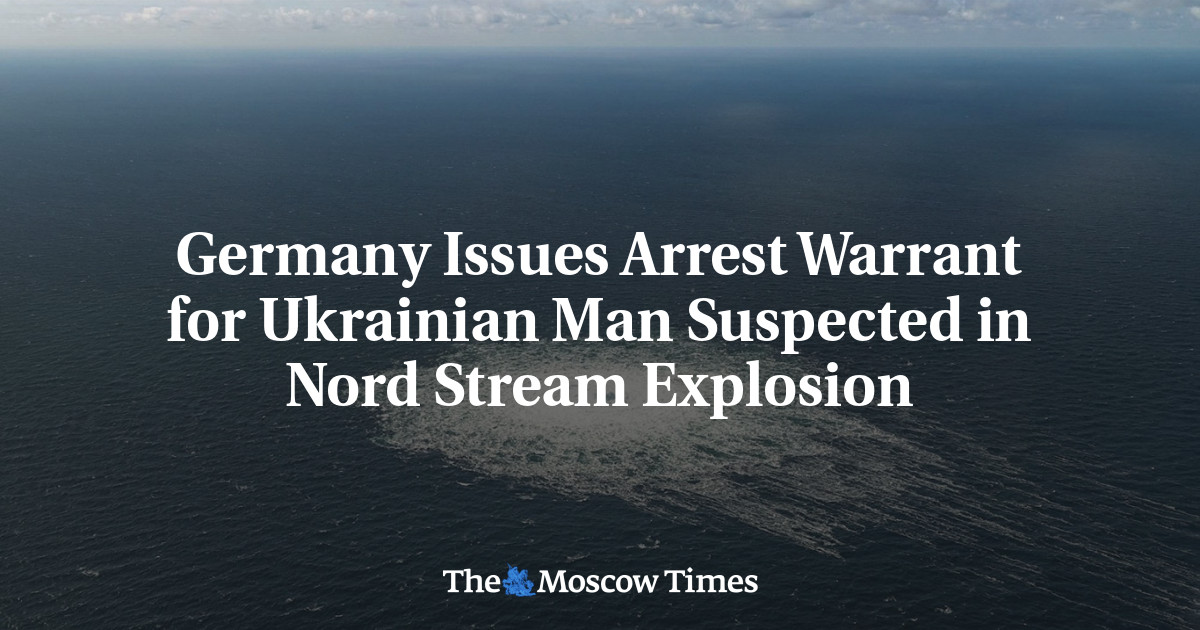
German prosecutors issued an arrest warrant for a Ukrainian diver believed to have been involved in the 2022 Nord Stream gas pipeline explosion, German media reported Wednesday.
The man, identified as Volodymyr Z., is suspected to have been part of a team that planted explosive devices on the pipelines. The warrant was issued in June, with his last known address reportedly in Poland.
Polish authorities confirmed on Wednesday that Berlin had notified them of the arrest warrant. However, they were unable to detain the man.
“Ultimately, Volodymyr Z. was not detained because, at the beginning of July, he left Polish territory, crossing the Polish-Ukrainian border,” Reuters quoted Anna Adamiak, a spokeswoman for Poland’s National Public Prosecutor’s Office, as saying.
Adamiak said Polish border guards had “no knowledge and no grounds to detain Volodymyr Z.” because the German authorities had not included him in the international database of wanted persons.
German investigators suspect that Volodymyr Z. was one of the divers who planted explosives on the Nord Stream pipelines, German media reported.
Sweden’s Expressen daily, which also covered the sabotage investigation, identified the man as 44-year-old Volodymyr Zhuravlyov. He is suspected of “anti-constitutional sabotage and causing an explosion.”
The Russian Telegram channel Shot, believed to have ties to Russia’s security services, claimed that Zhuravlyov had previously served in the Ukrainian army and had unsuccessfully attempted to obtain a Russian passport in 2009.
German investigators have also reportedly identified two other Ukrainians, a man and a woman, who they believe were divers involved in the attack. However, no arrest warrants have been issued for them yet.
In September 2022, four major gas leaks were discovered on the Nord Stream pipelines near the Danish island of Bornholm. Seismic institutes recorded two underwater explosions shortly before the leaks were detected.
The pipelines had been a focal point of geopolitical tensions, with Russia suspected of cutting gas supplies to Europe in retaliation for Western sanctions imposed over its invasion of Ukraine.
Although the leaks occurred in international waters, two were within Denmark’s exclusive economic zone and two in Sweden’s. The pipelines were not operational at the time of the explosions, but they still contained gas, which leaked into the water and atmosphere.
Denmark, Sweden and Germany each launched investigations into the explosions. However, both Denmark and Sweden closed their investigations earlier this year.
AFP contributed reporting.